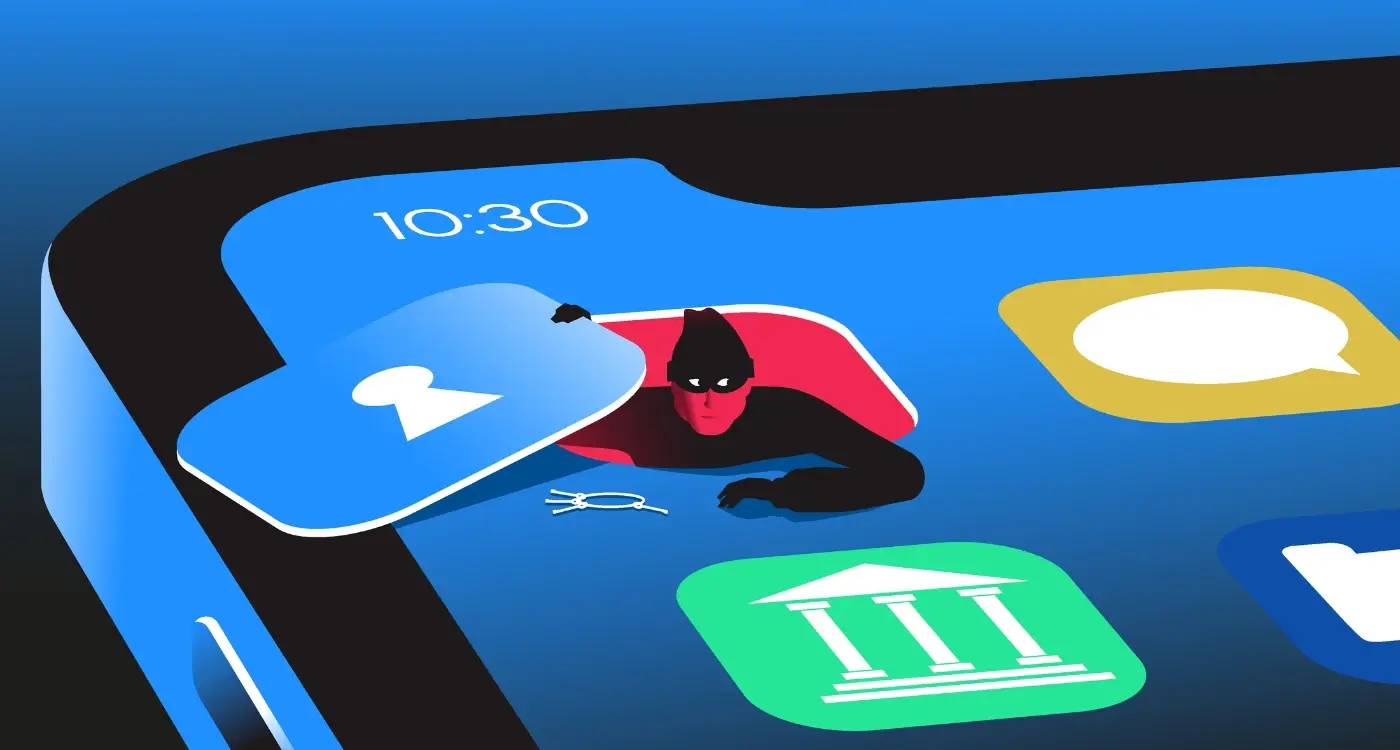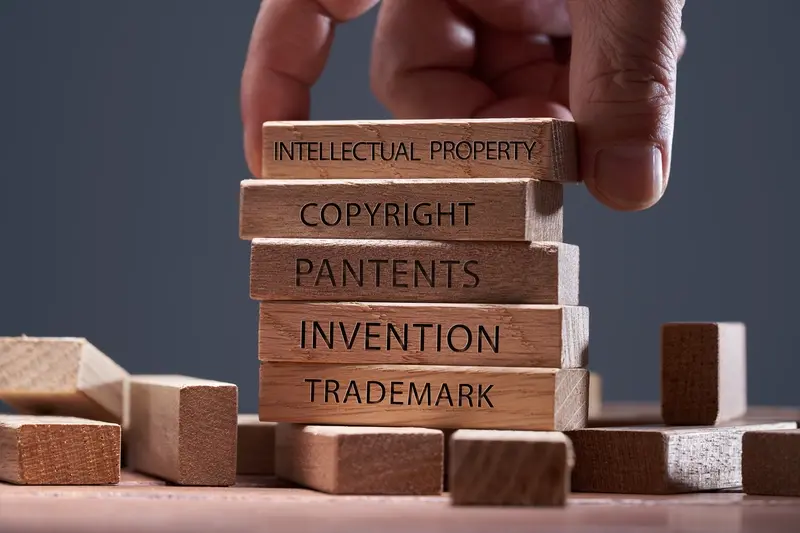How Do I Protect My Mobile App Idea?
So, you've come up with a brilliant mobile app idea—one that could revolutionise the market and grow your business significantly. Exciting, isn't it? But, amongst all the creativity and enthusiasm, there's always that little gnawing worry at the back of your mind: how do I stop someone from pinching this fantastic idea? We get it, and we're here to help you navigate that tricky situation of protecting your precious concept before you get to launch it. Protecting it ensures that you retain ownership and reap the rewards. But where do you begin?
Good artists copy, great artists steal.Pablo Picasso
While Picasso's words might have a certain ring to them, in the business world, protecting your original ideas is crucial. We'll walk you through a toolkit of strategies and practical steps to help safeguard your mobile app idea, ensuring you stay one step ahead of opportunistic 'borrowers'. From keeping your idea hush-hush initially to creating iron-clad agreements and building trustworthy relationships with investors and development agencies, we've got you covered.
Understanding the Value of Your Mobile App Idea
Here you are, you've just come up with a game-changing mobile app idea that could revolutionise the way people live, work, or play; you’re excited, and with good reason! But hang on a minute. Before you shout about it from the rooftops, take a moment to consider its value. Your mobile app idea is much more than a fleeting thought—it's a seed that could grow into a thriving business. But just like any valuable asset, it needs protection. If you leave it unprotected, someone might just run off with it and build it themselves. This is why understanding the value of your idea is crucial.
Values here are more than monetary, they include innovation, creativity, and potential market impact. Essentially, your idea is the brainchild that can separate you from your competitors and solidify your standing in the industry. If your app promises to solve a unique problem or offer a new, improved way to do something, then you’ve got a jewel on your hands! With every feature and benefit, its value grows, making it a prime target for copycats.
So, how do you gauge this value? Start with some good old market research. Tap into what's out there already and see where your app fits in. Is it the first of its kind? Or does it vastly improve upon existing solutions? Understanding these aspects not only cements the importance of protecting your idea but also helps you pitch it convincingly to stakeholders and investors.
In short, valuing your app idea is the first step towards taking it seriously and giving it the protection it deserves. Treat it like gold because, in the tech world, that's precisely what it is.
Keep It Under Wraps
Let’s be real: the excitement of a new idea can make it hard to keep it to yourself. You’ve got this brilliant mobile app concept, and it’s all you can think about. But before you start shouting it from the rooftops, take a moment to breathe. The first step in protecting your idea is to keep it confidential, at least until you've laid some groundwork.
You don't want to advertise your idea to every passer-by, would you? Sharing it prematurely can risk it falling into the wrong hands; someone else might develop it before you, or worse, claim it as their own. Keeping things under wraps means you're in control of who gets to know what, and when giving you valuable time to bring it to market.
One simple way to do this? Start by limiting discussions about your idea to only those people you absolutely trust. This tight circle might include your business partners, co-founders, or a few close advisors. And even then, make sure they're aware of the confidentiality you need to maintain.
In some cases, we understand that you might need to discuss your app idea with external parties early on. This could be potential investors, mentors, or even development agencies who might offer valuable feedback. For such instances, using a Non-Disclosure Agreement (NDA) can be a lifesaver. They act like a security blanket, ensuring that the person you're revealing your idea to legally cannot disclose it to anyone else.
So, before you let the cat out of the bag, remember to keep a lid on your app idea. It’s a small step with substantial benefits that you’ll thank yourself for in the long run.
Non-Disclosure Agreements
Think of a Non-Disclosure Agreement, or NDA, as your app idea's protection. It’s the document that says, "Let's keep this between us, shall we?" Now, NDAs aren't just for massive companies with large legal teams; they can be your best friend right when you're at the start of your app journey. Whether you're chatting with potential partners, investors, or a developer, an NDA helps ensure that your brilliant idea stays yours.
Here's how it works: an NDA is a legally binding contract between you and the other party that outlines what information must remain confidential. It’s like making a pinky promise, but way more official and with a lot more legal weight. By having them sign an NDA, you're not only protecting your app idea but also setting the tone that this is serious business.
| Type of Protection | Description | When to Use It |
|---|---|---|
| Non-Disclosure Agreement (NDA) | A legally binding contract ensuring that shared information must remain confidential. | Before discussing your app idea with potential investors, partners, or developers. |
| Patent | Provides exclusive rights to your invention, preventing others from making, using, or selling it. | When your app has a unique invention or technology that needs protection. |
| Copyright | Protects original works of authorship, including software code and design elements. | For safeguarding the actual codebase, design assets, and other creative materials of your app. |
| Trademark | Protects symbols, logos, and names that distinguish your app from others in the market. | When you want to secure your app’s brand identity and prevent confusion in the marketplace. |
| Non-Compete Agreement | Prevents employees or partners from creating a similar app or working with competitors. | When you’re hiring developers or entering partnerships and want to ensure exclusivity. |
That said, it's important to ensure the NDA covers the essential points. First, stipulate exactly what information is confidential. The clearer you are, the less wiggle room there is for misunderstandings. Second, specify the obligations of the receiving party (the one you're sharing your idea with). This could include things like not disclosing the information to others or not using the information for their own benefit. Lastly, outline the duration of the confidentiality. It doesn’t have to be forever, but it needs to be long enough to protect your interests.
You might think, "Does everyone really need to sign an NDA?" Well, ideally, yes! Anyone you're sharing detailed information with about your app should be under an NDA. This might feel a bit awkward at first—like you're giving a friend a trust fall exercise—but it's a necessary step to protect all your hard work and creativity.
And don’t worry, getting an NDA set up isn’t as daunting as it sounds. You can find templates online or – and this is a big one – consult a legal expert to ensure your NDA fits your specific needs. If you’re working with us here at Glance, we can guide you through the whole process and make sure all those crucial bases are covered, and stress-free. Just ask us for our NDA and we can send one out.
So, before you spill the beans about your app idea, remember to get an NDA in place. It’s a small step today that could save you a world of headaches tomorrow.
Patents and Copyrights
The terms 'patents' and 'copyrights' often get thrown around when discussing intellectual property, but it's crucial to know how they differ and why both are important for your mobile app.
A patent grants you the exclusive right to make, use, and sell your invention for a certain period—usually 20 years. It's like putting a 'Do Not Copy' sign directly on your app's innovative features. This is particularly useful if your app uses a unique algorithm or a novel technological process. However, patents for software can be tricky and sometimes a bit like finally catching that elusive Pokémon—possible, but not guaranteed. You'll need to prove that your idea is truly new and non-obvious. Detailed documentation and perhaps even a demo would come in handy here.
On the other hand, copyrights protect the expressive elements of your app: the code, the images, any original audio, and the overall design. Think of it as putting a stamp on the artistic part of your creation. The moment you create and capture your work in a tangible form (such as writing the code or designing the UI), copyright protection kicks in automatically. This makes it a quick and efficient way to secure your rights without jumping through as many hoops as patents require.
Both provide robust protection but in different areas. Imagine your app is a castle: patents would guard your innovative drawbridge mechanism, while copyrights would protect the intricate carvings and paintings within the walls. A well-rounded defence strategy usually involves leveraging both types of protection where applicable.
Don’t forget about Registered Designs, which protect the appearance of your product rather than the underlying technology. If your app offers a particularly user-friendly or attractive interface, this can be another layer of protection.
So, while the legal mumbo-jumbo might seem daunting, think of it as investing in top-of-the-line security for your big idea. This way, you can focus more on making your app the best it can be, without constantly looking over your shoulder for would-be idea-snatchers.
Safe Discussions with Investors
So you've got an incredible mobile app idea that you believe could revolutionise your industry. It's like a rare gem waiting to be polished. To bring this brilliance to life, you need investors. Now, here's the tricky part—how do you discuss your idea without having it stolen or copied?
First things first, consider who you're speaking with. Are they reputable? Have they been recommended by someone you trust? Conduct some research to ensure they're legitimate and have a good track record.
Next up, get those NDAs (Non-Disclosure Agreements) ready. It might seem like extra paperwork, but NDAs are your first line of defence. Before sharing those juicy details, ask the potential investor to sign an NDA. This ensures that whatever you discuss remains under wraps.
- Legal protection: NDAs offer legal recourse if someone tries to misuse your information.
- Confidentiality: They enforce confidentiality, ensuring your idea isn’t disclosed without permission.
- Trust building: Signing an NDA shows you're serious about your project and helps build trust with the investor.
- Peace of mind: Knowing your idea is safeguarded can make it easier to share essential details without constant worry.
- Credibility: Implementing NDAs can make your business appear more professional and prepared.
But here’s the thing—many seasoned investors may shy away from signing NDAs. They review multiple pitches and have their own ideas to protect. In such cases, it’s wise to share only essential information; you want to share enough to spark interest, but not enough to allow someone to make an exact copy.
If you’re pitching to an investor without an NDA, focus on discussing the problem your app solves and the market potential. Save the details—the unique features, algorithms, and proprietary information—for later stages when there's more trust established.
Lastly, be vigilant about documenting your discussions. Keep records of meetings, email exchanges, and any agreements. This paper trail not only helps defend your interests but also demonstrates that you’re organised and professional—qualities investors appreciate.
So, yes, pitching to investors without spilling all your secrets can feel like walking a tightrope. But with careful planning, using NDAs wisely, and sharing just the right amount, you can navigate these discussions safely. Remember, at Glance, we've seen countless businesses go through this stage. We're here to reassure you—you're not alone in this journey.
How to Discuss Your Idea with Developers Securely
When you're ready to bring developers on board, the temptation to openly discuss your ideas in excitement can be overwhelming. After all, you've been nurturing this idea, and seeing it come to life with the help of experts is a thrilling prospect. But caution is key!
Begin with an NDA: Right off the bat, before any detailed discussion, have your developers sign an ironclad Non-Disclosure Agreement (NDA). This document not only legally binds them to secrecy but also shows them you mean business.
Share Only What’s Necessary: Think of your app idea as a precious family recipe. When you first talk to developers, share the ingredients, not the whole recipe. Focus on discussing functionalities and requirements rather than giving away the core concept.
Choose Reputable Developers: Opt for a development team with a solid reputation and good reviews. Agencies like Glance, with a proven track record, can provide peace of mind. Remember, established developers are less likely to jeopardise their reputation by stealing ideas.
Maintain Ownership of Code: During negotiations, ensure you have full ownership of the source code upon project completion. Having this stipulation in your contract prevents developers from claiming any rights to your mobile app.
Regular Check-ins and Documentation: Keep the communication line open and maintain regular check-ins. Document every interaction and progress update. This paper trail not only helps keep everyone accountable but also serves as a reference in case you need it in the future.
While safeguarding your app's idea remains paramount, remember that trust and mutual respect among all parties involved are also crucial. After all, successful collaboration is built on a foundation of both security and strong professional relationships.
The Role of Trust and Relationship Building
Remember when you were a kid and had to pick a partner for a school project? You'd often gravitate towards someone you trusted. The same principle applies in the business world. Building trust and solid relationships with those working on your mobile app is crucial. After all, you wouldn't hand over your precious idea to just anyone, would you?
Trust isn't built overnight. It’s a gradual process that requires transparency, communication, and a bit of gut feeling. Start by doing your homework. Look at reviews, ask for recommendations, and even meet face-to-face if possible. Think of it as dating—get to know them before committing.
Let's say you’ve found a promising development team. Next, assess their reliability. Do they meet deadlines? Do they communicate effectively? Are they transparent with their processes? These are the building blocks of trust. Remember, actions speak louder than words. Consistent, reliable actions from your team members will build the foundation of a trusting relationship.
An idea that is developed and put into action is more important than an idea that exists only as an idea.Edward de Bono
Another element is your gut instinct. Much like you wouldn’t trust a dodgy salesman with your money, you wouldn’t want to trust the wrong developer with your app idea. So if something feels off, trust your instincts and investigate further.
Finally, maintaining trust requires continuous effort. Regular check-ins, open forums for feedback, and fostering a collaborative environment are essential. This isn't just about protecting your idea; it's about building a team invested in your success. In the long run, these relationships can lead to a more successful and secure app development process.
Conclusion
We understand how nerve-wracking it can be to share your mobile app idea, worrying someone might nab your brilliant concept before you've had a chance to make it shine. But don’t fret—you’re not alone in this journey. By taking the right steps, like using NDAs, seeking patents and copyrights, and building trustworthy relationships, you can safeguard your idea effectively.
At Glance, we've seen countless ideas blossom into successful apps, and each one started with solid protection measures in place. Think of your app idea like a seed; without a secure and nurturing environment, it won't grow to its full potential. By following the steps we've outlined, you're providing your 'seed' the best chance to sprout and thrive.
Remember, a little bit of preparation can save a lot of headaches down the road and whilst it's not the most exciting part of your adventure, it's absolutely essential. And if you ever feel stuck or need expert advice, we're here to help without any biases or strings attached so please do reach out to us. After all, your success is our success.
Happy innovating!
Share this
Subscribe To Our Learning Centre
You May Also Like
These Related Guides

Can Someone Steal My App Idea Before I Launch It?

Do I Need A Patent For My Mobile App?



